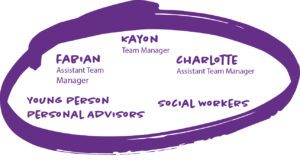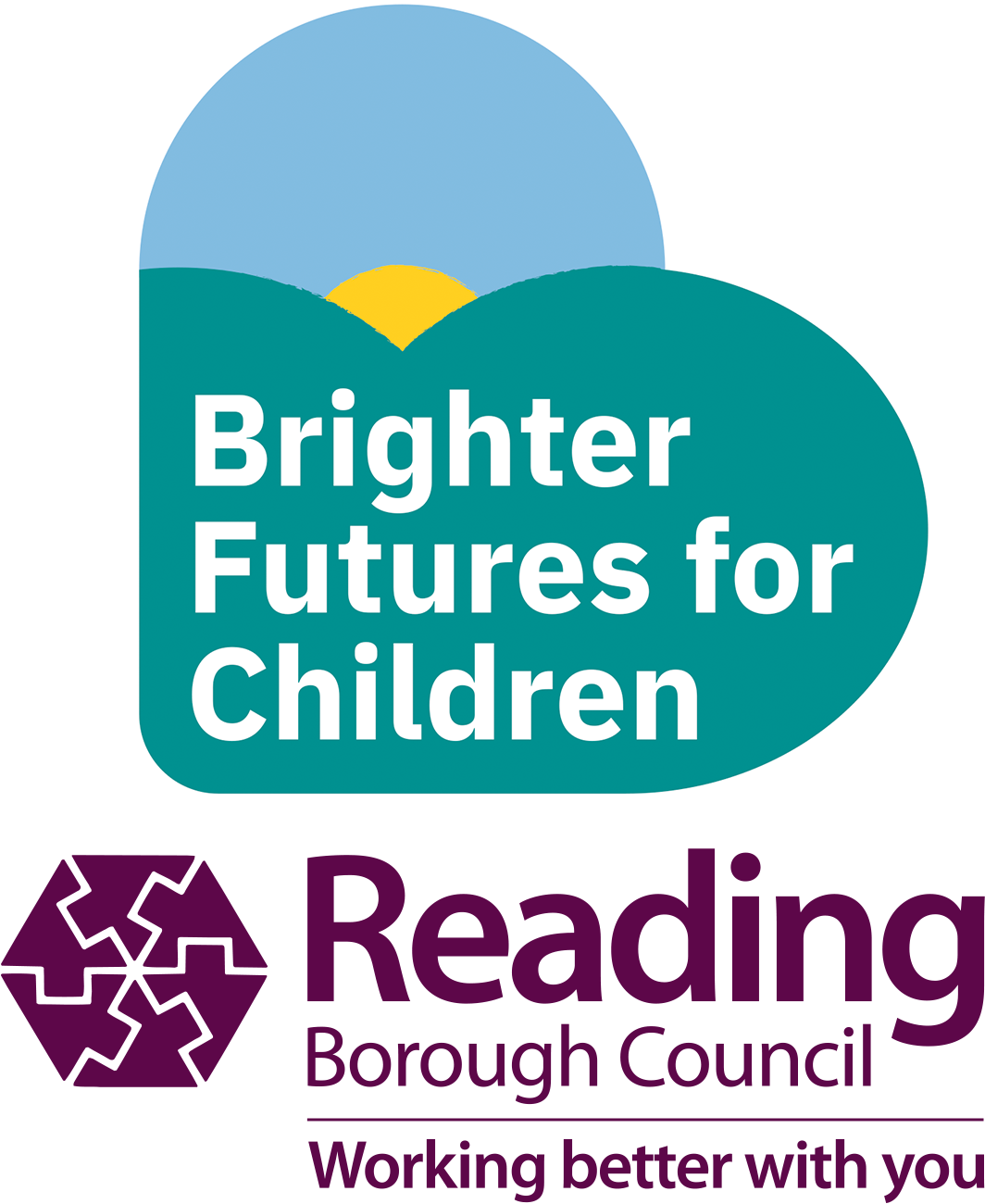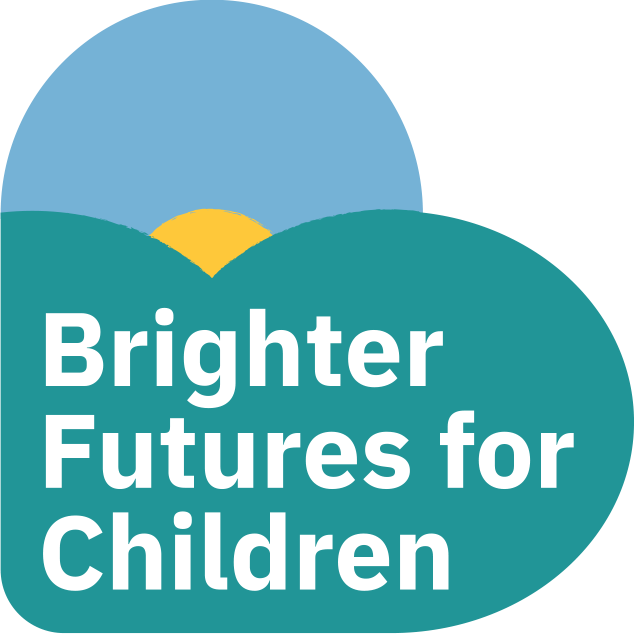- Home
- YOUNG PEOPLE’S ZONE
- Care leavers
- Care leavers – Local Offer
The Leaving Care Service - our Local Offer for Reading Care Leavers
The process of leaving care and transitioning to adult life can be a challenging and confusing time. This guide has been created to tell you about all the support that we have in Brighter Futures for Children (BFfC) and Reading Borough Council (RBC) for you as a care leaver.
We know that it is a big step when you move out of care and start living on your own or with friends. Just because you are leaving care, or have already left care, we haven’t stopped caring about you.
We want to make sure you feel safe and supported and know where and who to go to for advice and help.
We will continue to listen to your views and to make sure the services we offer are what you need. With that in mind, our local care leavers have helped develop this offer.
To be able to get the support set out in this offer, you must have been in care for a period of at least 13 weeks (or periods amounting to 13 weeks) which began after age 14 and included some time after your 16th birthday. If you are not sure whether you qualify for support, then please contact the Leaving Care Service. Please see the section ‘Eligible’ below.
Your social worker or leaving care advisor will talk with you about the information in this guide and can provide further information.
You can also download the information contained on this page as a document if you click here.
Who can access support from the Leaving Care Service?
In order to understand the type of support you will receive from the Leaving Care Service you will need to understand some key words which are used to describe the four categories of care leaver.
These key words and definitions are described below. If you need further help understanding them, you can discuss them with your social worker or leaving care advisor.
‘Eligible’ young people are 16 or 17 year olds who are still looked after (in care) and were looked after for at least 13 weeks since the age of 14.
‘Relevant’ young people are 16 or 17 years old who are no longer looked after but were looked after for at least 13 weeks since the age of 14 (including on their 16th birthday).
‘Former Relevant’ young people are young people aged 18-21 years who were previously an ‘eligible’ or ‘relevant’ child.
You can continue to be a ‘former relevant’ young person up to the age of 25 if you are continuing on an education or training course.
‘Qualifying’ young people are young people aged 16-21 years who were looked after on or after their 16th birthday, who are no longer looked after and were looked after for less than 13 weeks after their 14th birthday.
If you are eligible to receive leaving care support, you will not necessarily have an allocated worker or be eligible for all the support outlined in this offer.
However, we can offer advice and guidance and can work with you to assess and consider any additional needs you may have.
We can also work with you to make a plan for how those needs will be met. We can also offer help with living expenses if you are in higher education, up to the age of 25.
The amount of support you get will depend on your age and circumstances.
To get the full support detailed in our Local Offer you must have been in care for at least 13 weeks between the ages of 14 and 16 (including on your 16th birthday) or in care for at least 13 weeks after your 16th birthday.
If you are unsure of your status or what support you are entitled to, please speak to your personal advisor who will be able to help you to understand your rights and entitlements.
Your support team – who we are and what we do
We are your corporate parents which means that everyone from Reading Borough Council’s Chief Executive and Brighter Futures for Children’s Board, down to all front line staff and elected council members are concerned about you as if you were our own child.
This means that it is our responsibility to be good parents to you and all care experienced young people.
We also have a Service Manager – Roselind – who oversees the service and some specialist workers who can offer more specialist support. It is all our jobs to support you in your journey towards independent living. We have a legal duty to support you until you are 21 – or up to the age of 25 if you are in education or would like that ongoing support.

We are based at the Civic Centre near Reading town centre and are part of the Council’s Children’s Services, Brighter Futures for Children.
Address:
Civic Offices, Bridge Street, Reading RG1 2LU Telephone:
0118 937 5320
Email: leavingcare@brighterfuturesforchildren.org or corporateparenting@brighterfuturesforchildren.org
There is also a lot more information about the support and services we offer on our website, in the pages dedicated to care leavers in our Young People’s Zone.
We can help you to:
- make plans for your future
- stay in education for as long as you want to
- find the training course or career that you really want
- find a job
- have somewhere suitable to live
- make sure that you have enough money to live on
- support you to budget
- keep yourself fit and healthy and to feel good about yourself
- stay in touch with people who are important to you
- deal with difficulties and negotiate solutions to problems
- find out about your rights
- access your in-care records when you reach the age of 18, if you want to.
Your existing social worker will introduce you to your leaving care advisor who will provide you with their telephone and email contact details.
Alternatively, you can contact the leaving care duty number:
- Leaving Care Service Duty number: 0118 937 5320 (Leaving Care)
The Leaving Care Service has a duty system to cover staff absence, so if you are unable to contact your social worker or leaving care advisor and if the matter is urgent, you can request to speak to the duty worker.
If the matter is really urgent you can also request to speak directly to the practice manager or team manager.
The Leaving Care Service is open during normal office hours, typically 9am to 5pm. If you need to speak to someone urgently outside of these hours, you can contact the Reading out of hours service. Support out of hours is limited to emergencies only:
Out of Hours Tel: 01344 351999
You can also email the team at: leavingcare@brighterfuturesforchildren.org or corporateparenting@brighterfuturesforchildren.org

Your voice is important

Our children in care council provides children and young people with opportunities to have a say on the issues that matter to them as a looked after child and to be heard by the people who make decisions about their lives.
You have the right to be involved in all decisions about your plans for leaving care.
Being a part of Reading’s Children in Care Council is a fantastic opportunity to influence real changes to the services and support that all of Brighter Futures for Children’s children looked after and young people receive.
It enables children and young people to express their views, make suggestions directly to senior managers and the Corporate Parenting Panel, and meet new people and get involved in exciting activities.
To find out more please go to the Care2Listen pages on this website.
You have a right to support from an independent advocate if you are thinking about challenging any decision about the care or support that we give you.
If you sometimes find it difficult to say what you want, or you would like someone to help represent your views, you are entitled to have an advocate who will help you.
If you are aged under 18, we will appoint an advocate for you. If you are aged 18 or over, we will be able to point you in the right direction to obtain an advocate if we cannot provide one ourselves.
Your advocate will be someone independent of the council and will be there to ensure that you are listened to; they might come with you to meetings to help you to get your views across.
You have a right to support from an independent advocate if you are thinking about challenging any decision about the care or support that we give you. Advocacy: if you sometimes find it difficult to say what you want, or you would like someone to help represent your views, you are entitled to have an advocate who will help you. If you are aged under 18, we will appoint an advocate for you. If you are aged 18 or over, we will be able to point you in the right direction to obtain an advocate if we cannot provide one ourselves. Your advocate will be someone independent of the council and will be there to ensure that you are listened to; they might come with you to meetings to help you to get your views across.
Advocacy support for Reading care leavers is provided by an organisation called Reconstruct You do not need to arrange this contact through your worker. You can contact them directly by calling 0800 0209858 or visiting their web pages specifically for children and young people cared for by Brighter Futures for Children. Or you can email them at Advocacy.Reading@reconstruct.co.uk
If you want to make any type of comment about your care or the services that you have received, you can contact us by email at Socialcare.complaints@reading.gov.uk or by calling 0118 937 2905.
There’s a leaflet specifically for you on our website. It’s called Let Us Know and it gives you all the information you need on how to make a complaint, and also how to send us a compliment, if you’d like to do that.
Alternatively, you can just tell your social worker or personal advisor or your carer that you want to make a comment or complaint.
We guarantee that we will listen to what you have to say, we will looking into it properly, and will respond to you in a reasonable time-scale.
Yes, the law says you have a right to see personal information held about you unless we think it would be emotionally harmful to you (before you are 18). If we decide you cannot see your records, then your social worker or leaving care advisor will explain why to you. When you are 18 you will be able to see all the records kept in relation to you, and your social worker or leaving care advisor will talk to you about what support you will need to read and understand the papers. There may be circumstances in which reading your file even as an adult may be upsetting for you and this will be discussed as part of the access request.
For more information, please follow this link: Privacy policy or send an email to: info@brighterfuturesforchildren.org
Adult Services
If you are a care leaver identified as having complex additional needs in relation to your transition to adult life, your social worker will discuss with you and seek your consent to complete a referral to RBC Adult Services. A member of the transition team will then work alongside your social worker or leaving care advisor to undertake an assessment of your needs. This will identify your level of independence and your future support needs as provided by Adult Services.

Support with planning ahead
Pathway plans will be prepared for all eligible, relevant and former relevant young people (see the descriptions at the top of this page). From the age of 16 your pathway plan will replace your care plan. Your pathway plan is about your needs and what we all need to do to ensure your successful transition to adult life.
Your pathway plan is written by BFfC in consultation with you and important people in your life. It sets out your needs, views and future goals, and identifies exactly what support you will receive from us. We will review your pathway plan with you regularly so that it is kept up to date.
We will try to enable you to keep the same leaving care advisor, though this will not always be possible. The amount of support you receive from your leaving care advisor will depend on what you want and your circumstances.
The Leaving Care Service will consider with you what extra support you may need. You might, for example, need extra support because:
- You have special educational needs or a disability
- You are an Unaccompanied Asylum-Seeking Child (UASC) and your immigration status is unclear
- You are in or leaving custody or you have had contact with the criminal justice system
- You are a young parent, or
- You are going through a difficult time in your personal life.
For your pathway plan to be effective it will be based on an up to date needs assessment and will set out the support that you need to achieve your aspirations. We aim to fully involve you in the development of your pathway plan. You have a right to be involved in all decisions about your plans for leaving care. You also have the right to support from an independent advocate if you want to challenge any of the decisions about the support we give you (see Advocacy Services information in the appendices).
With your agreement and where it is appropriate, we will seek the views of your parents and carers. We will also seek the views from our partner agencies which may include; Housing, Education, training and employment providers, Job Centre, health services, Youth Offending Services, Transition Support Service and others. Your pathway plan will seek to ensure that all agencies are working together to provide you with clear and consistent advice and support.
Your initial pathway plan will be completed before you are 16 years and three months old. If you are already over 16 on entering care of the local authority, your pathway plan will be completed within three months of your accommodation start date.
Your pathway plan will then be reviewed within every six months or within every 28 days of any significant change to your plan, such as a change of address, significant health event or at your request.
As an eligible care leaver your pathway plan will be written and available at your statutory review which will continue to be chaired by your Independent Reviewing Officer (IRO). A statutory review must take place before making a decision to confirm that a young person is ready to leave care.
If you are a relevant care leaver, your pathway plan review meeting will be held within every six months or 28 days of a significant change. Your pathway plan review will be undertaken by your leaving care advisor who will consult with you and when in-line with your wishes other important people and professionals.
If you are a former relevant care leaver your pathway plan will continue to be updated within every six months or 28 days of a change of address. Your pathway plan review will be undertaken by your leaving care advisor who will consult with you and when in-line with your wishes other important people and professionals.
As a care leaver we recommend you open a bank account. You will be supported to do so by your social worker or leaving care advisor who will ensure you have the necessary ID and a supporting letter for you to do this. A payment schedule of your entitlements will be confirmed prior to entitlements being paid directly into your account. BFfC may choose not to make direct cash payments to you where there are concerns around budgeting or risky behaviours.
Payments can be made to all high street banks and we recommend you shop around for the best offer when identifying a bank.
For information regarding savings and ISA, please ask your social worker or leaving care advisor for advice or signposting.
An EHC plan identifies a child’s special educational needs, and where relevant, brings together education, health and care services to achieve agreed outcomes. An EHC plan will only be written for an eligible child on the completion of a SEND needs assessment.
Children, young people and families are at the centre of the assessment and planning process and this should be reflected in the EHC plan. The focus is very much on what is important for the child or young person and what they want to achieve now and in the future.
Your EHC plan will be reviewed by the local authority a minimum of every 12 months. These reviews will focus on your progression towards achieving the outcomes specified in your plan. The review will also consider whether the outcomes and supporting targets remain appropriate.
The Elevate Team:
Elevate are an impartial team within BFfC containing professionally qualified career coaches, who are fully knowledgeable with safeguarding procedures, data protection regulations, local, regional and national labour market information.
Elevates aim is to help young people aged 16-18 who are not in education, employment or training (NEET) or at risk of being NEET, to make informed career choices about their future, supporting them into education, employment or training.
Keep updated on local job and apprenticeship opportunities on the Elevate page here: Elevate – careers service
How Elevate can help:
- Exploring career ideas and making choices
- Choosing options at 16 and 18
- Alternative Training Provisions
- Support for Job Hunting including interview skills & CV writing
- Apprenticeships
- Further education options
- Higher education
- Alternatives to Higher Education
We are keen to hear from you as you leave care. We want to know what we did well and what we need to change so that we can help other young people like you get the best service possible. We have an easy to complete exit interview online and it is available here: Exit Interview form.
The exit interview will seek your views on your entire journey through the Leaving Care Service, covering aspects such as education, accommodation support and post 21 planning. Your feedback is vitally important to us to ensure that we continue to review progress and improve services for you.





